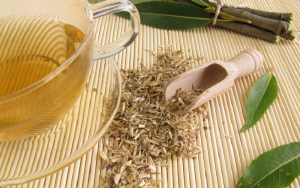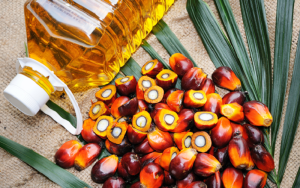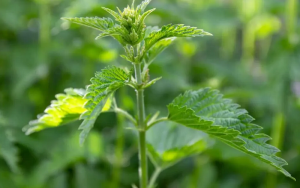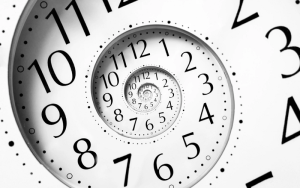
Menopause is a natural phase in a woman’s life, marking the end of her reproductive years. However, the transition can often be accompanied by an array of uncomfortable symptoms like hot flashes, night sweats, and mood changes, leaving many women searching for relief. While Hormone Replacement Therapy (HRT) and other conventional treatments are often recommended, some women prefer natural remedies for various reasons, including potential side effects and personal health beliefs. Enter Red Clover Extract – a plant-based supplement that’s gaining attention in the sphere of natural menopause remedies.
Contents
Introduction to Red Clover Extract and Menopause
As women traverse the path of life, they inevitably cross the bridge into menopause. This natural transition, typically occurring between the ages of 45 to 55, marks the end of a woman’s reproductive years. It’s a significant phase, bringing both relief from menstruation and a new set of challenges.
Brief Explanation of Menopause and Its Symptoms
Menopause is a biological process characterized by the cessation of menstruation due to a decrease in the production of hormones, particularly estrogen and progesterone. This change often prompts a range of symptoms, which vary in severity and duration from woman to woman. Common symptoms include hot flashes, night sweats, sleep disturbances, mood swings, and vaginal dryness. For some, these symptoms can significantly impact daily life and wellbeing.
Current Popular Remedies for Menopause Symptoms
The quest for relief has led to a myriad of treatments, both medical and natural. Hormone Replacement Therapy (HRT), where synthetic hormones are used to balance the body’s hormone levels, is a widely accepted medical treatment. However, due to associated health risks and side effects, many women are hesitant about HRT and seek out natural alternatives. These can range from lifestyle adjustments, such as dietary changes and exercise, to supplements like black cohosh, St. John’s Wort, and soy isoflavones.
Introduction to Red Clover Extract as an Alternative Solution
One such alternative making waves in the realm of natural menopause relief is Red Clover Extract. This humble plant, traditionally used in herbal medicine, has been thrust into the limelight as a promising supplement to ease menopause symptoms. The potential of Red Clover Extract lies in its rich isoflavone content – plant-based compounds that mimic estrogen in the body.
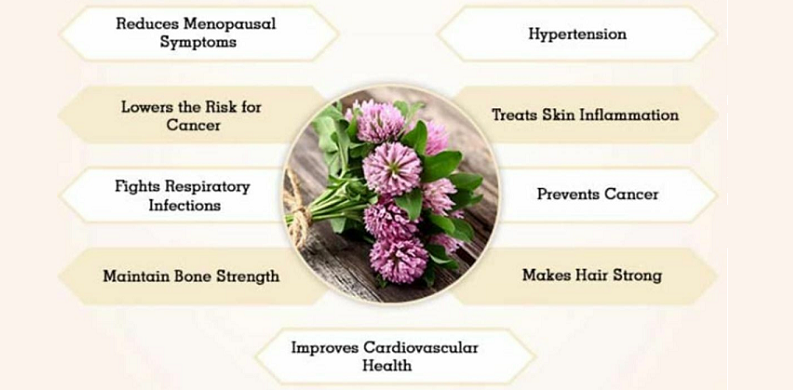
Understanding Red Clover Extract
Before describing the potential benefits of Red Clover Extract for menopausal symptom relief, it’s important to understand what exactly this plant is and why it’s considered significant.
Description of Red Clover
Red Clover, known scientifically as Trifolium pratense, is a perennial herbaceous plant found in Europe, Western Asia, and Northwest Africa, but it’s also widely grown in North America. Distinguished by its vibrant purple-red flowers and trifoliate leaves, this small plant is more than just a beautiful addition to any meadow or pasture. Red Clover has long been prized in traditional medicine, and its extract has been utilized in various health supplements.
Historical Uses of Red Clover in Medicine
The use of Red Clover as a medicinal herb dates back centuries. Traditional Chinese Medicine and Ayurveda have utilized Red Clover to treat various ailments, from respiratory issues to skin disorders. In certain cultures, it was used as a ‘blood purifier’ due to its purported detoxifying properties. The primary parts of the plant used for medicinal purposes are the blossoms, which are dried and used for teas, or processed into extracts and pills.
Components of Red Clover Extract and Their Benefits
What makes Red Clover particularly interesting is its rich isoflavone content. Isoflavones are a type of phytoestrogen, plant-based compounds that structurally resemble estrogen, the primary female sex hormone. The major isoflavones found in Red Clover include daidzein, genistein, formononetin, and biochanin A.
These isoflavones have been the subject of scientific research due to their potential health benefits. Beyond menopausal symptom relief, studies suggest they may support bone health, cardiovascular health, and cognitive function.

Red Clover Extract and Hormonal Balance
A key aspect of menopause is the shift in hormonal balance, particularly the decrease in estrogen levels. This is where Red Clover Extract comes into play, thanks to its rich isoflavone content. In this section, we explore how these plant-based compounds interact with the body’s hormone system and potentially aid in symptom management during menopause.
The Role of Isoflavones in Red Clover Extract
Isoflavones are plant-based compounds found in various foods, notably soy and legumes, but Red Clover is an especially rich source. These compounds have a similar structure to the human hormone estrogen, earning them the title of phytoestrogens – or plant estrogens. When consumed, these isoflavones may interact with estrogen receptors in the body, potentially impacting various biological processes influenced by estrogen [1].
Discussion on Phytoestrogens and Their Potential Benefits
Phytoestrogens like those found in Red Clover can bind to estrogen receptors in the body, mimicking the action of the hormone to a certain extent. They are, however, weaker than the body’s own estrogen. During menopause, as the body’s natural estrogen levels decline, phytoestrogens may help fill the void, potentially lessening menopause symptoms.
Explanation of How Phytoestrogens May Mimic Estrogen in the Body
In essence, phytoestrogens could serve as a natural form of Hormone Replacement Therapy (HRT). They can attach to the same places in the body (called receptors) where estrogen normally attaches. When phytoestrogens occupy these receptors, they can have either mild estrogenic (mimicking estrogen) or anti-estrogenic (blocking estrogen) effects.
This ability to act like a “natural HRT” could be significant for menopausal women. If phytoestrogens can effectively replace some of the estrogen that the body stops making during menopause, they might help relieve common symptoms associated with reduced estrogen levels [2].
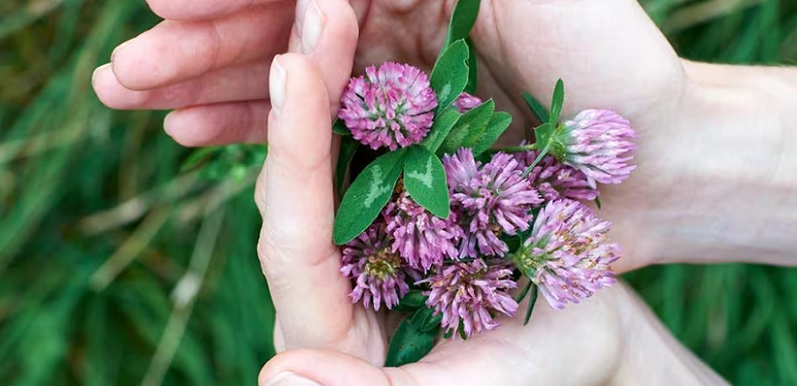
Scientific Research on Red Clover Extract and Menopause
While traditional usage and the presence of phytoestrogens give reason to believe that Red Clover Extract might be useful for menopausal symptom relief, the ultimate test lies in scientific research.
Overview of Existing Research
The potential benefits of Red Clover Extract for menopause symptoms have been explored in numerous scientific studies over the past few decades. Researchers have primarily focused on hot flashes, one of the most common and bothersome symptoms of menopause. Some studies have also examined the effects of Red Clover Extract on bone density, a concern for many post-menopausal women due to the increased risk of osteoporosis.
Specific Studies on Red Clover Extract and Menopause Symptoms
One notable study, published in the journal “Maturitas,” found that menopausal women taking Red Clover Extract experienced a significant reduction in daily hot flashes compared to those taking a placebo. In another study published in the journal “PLOS ONE,” researchers observed that not only did Red Clover Extract decrease hot flash frequency, but it also appeared to help preserve bone mineral density in the spine [3].
However, it’s important to note that not all studies have shown positive results. Some research has suggested that Red Clover Extract has little to no effect on hot flashes or bone density, highlighting the need for more extensive and rigorous studies.
Interpretation of Results and Their Implications
Overall, the scientific evidence concerning Red Clover Extract for menopausal symptom relief is promising but mixed. Some studies show benefits, while others do not. This inconsistency could be due to various factors, including differences in study design, the specific Red Clover preparation used, and individual variations in how women’s bodies metabolize and respond to isoflavones [4].
Comparing Red Clover Extract to Other Menopausal Remedies
In the quest to alleviate menopause symptoms, various treatments and remedies come into consideration. These range from medically prescribed solutions like Hormone Replacement Therapy (HRT) to other natural alternatives such as black cohosh or soy isoflavones. To understand where Red Clover Extract fits in this array of choices, it’s helpful to compare it with these other solutions.
Comparison with Hormone Replacement Therapy (HRT)
Hormone Replacement Therapy is a medically prescribed treatment that aims to replace the hormones that decrease during menopause. While HRT is effective in alleviating menopausal symptoms, it isn’t without its drawbacks. It has been associated with increased risks of certain health conditions, including breast cancer, heart disease, and stroke.
In contrast, Red Clover Extract, being a natural source of phytoestrogens, might offer a gentler approach. The isoflavones in Red Clover can mimic the effects of estrogen in the body but to a lesser degree than HRT. It might thus provide some symptom relief without the associated risks of HRT. However, the effectiveness and safety of Red Clover Extract have not been established as conclusively as HRT [5].
Comparison with Other Natural Remedies (e.g., Black Cohosh, Soy Isoflavones)
Other natural remedies commonly used for menopausal symptoms include black cohosh and soy isoflavones. Like Red Clover Extract, these remedies contain phytoestrogens that may help balance hormone levels.
While these natural remedies have also shown promise in scientific studies, results are mixed, and their effectiveness varies from person to person. Furthermore, they come with their own set of considerations. For instance, black cohosh may cause stomach upset in some individuals, and soy isoflavones are not recommended for women with certain health conditions, including those with a history of estrogen-sensitive cancers [6].
Discussion on the Potential Advantages and Disadvantages of Each Treatment
Ultimately, each of these treatments—HRT, Red Clover Extract, and other natural remedies—has its own potential advantages and disadvantages.
HRT is often considered the most effective treatment for menopausal symptoms but comes with the highest potential risk. On the other hand, natural remedies like Red Clover Extract, black cohosh, and soy isoflavones are generally considered safer but their effectiveness can vary widely between individuals.
References
[1] Red clover
[2] Red Clover and the menopause; benefits and side effects
[3] Effects of red clover on hot flash and circulating hormone concentrations in menopausal women
[4] Short-Term Supplementation With Fermented Red Clover Extract Reduces Vascular Inflammation in Early Post-menopausal Women
[5] Red Clover
[6] Natural Remedies for Hot Flashes

